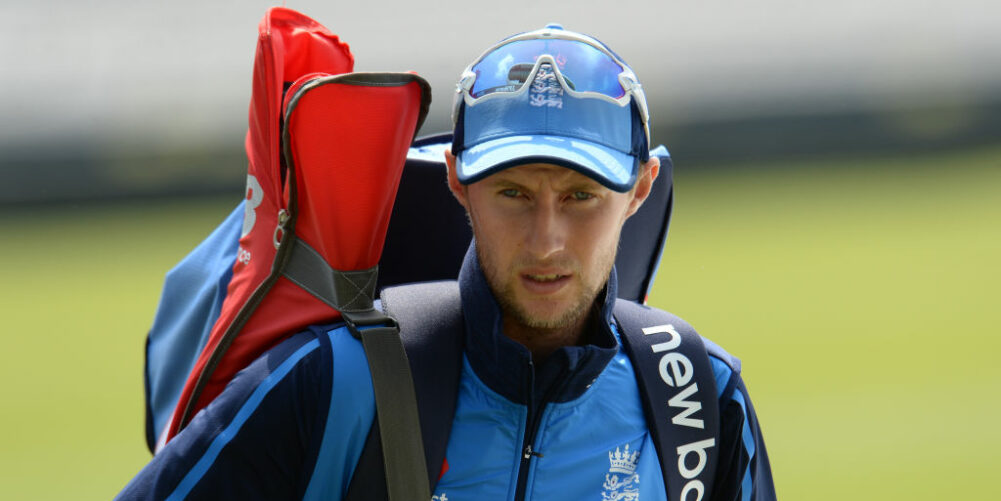Most of the headlines regarding the first England squad picked by the new National Selector Ed Smith and his panel have focused on changes to the batting order at number five and seven, to be occupied in the opening Test against Pakistan at Lord’s by Jonny Bairstow and Jos Buttler.
But the move to number three by Joe Root is equally eye-catching, signalling, as it does, a major change of heart and mind by England’s best batsman, who spent a large part of the first year of his captaincy resisting all efforts to shift him from his preferred berth at four.
At Lord’s on Tuesday, Smith took great pains to insist the decision had come primarily from Root himself and his explanation was clear and concise and well presented.
Yet there are those who believe the move suggests the new regime will be more inclined to take responsibility for the big decisions themselves rather than leave them to the captain, which would represent not so much a clipping of the skipper’s wings but a redistribution of influence and authority within the set-up from which he may actually benefit in the long run.
Root is no stranger to the number three spot. Two summers ago he made his highest Test score of 254 against Pakistan at Old Trafford at first wicket down, adding an unbeaten 71 in the second innings as England won by 330 runs. And while his average of 43.97 is lower than that he achieved at four (52.56) and five (73.13), generally speaking, with the ball usually harder and shinier, the bowlers fresher and the pressure more intense, the higher up the order you make your runs, the more valuable they are. Ask the openers.
On the face of it, an elevation by one place might not seem hugely significant, but bearing in mind the strength of Root’s resistance to the notion from the moment he took over from Alastair Cook, it does raise the question: ‘Did he really jump, or was he pushed?’
According to Smith: “I think it’s a really good move by Joe. He wanted to bat at three, given the side we’ve selected.
“It was something that came from Joe. If you’d asked me what did I think, I’d have said I’d love Joe to want to bat at three and, independently of that, Joe has said that’s what he wants to do and I think it’s an excellent idea.
“Joe just wants what’s best for the team. He has been terrific throughout. I caught up with him ahead of the meeting and every conversation with Joe has been open-minded about how we can move the Test team forward.”
But what is now behind his change in attitude?
“He just felt that was what was best for the team. If it had been best for the team for him to bat somewhere else he would have done that too.”
We get it, Ed. It was Joe’s idea because he felt it was best for the team and, on face value, fair enough.
But, I hear from those among you less inclined to take things on face value, doth the gentleman protest too much? After all, before, during and even after England dragged themselves home from Australia with a four-nil Ashes drubbing and New Zealand with a 1-0 defeat, all we ever heard from within the management and coaching staff on the subject was that, no matter what was “best for the team”, Root would continue to bat at four because, it seemed, that was best for him.
Aside from everything else, that meant James Vince was asked to take on the role of third opener in the cauldron of Ashes cricket, at which he was totally inexperienced and to which everyone, including him, judged him to be technically and temperamentally and fundamentally unsuited.
Vince, indeed, might have been entitled to ask how that was best for him or the team…
And all the time we knew what coach Trevor Bayliss really thought because he has been telling us in general terms almost from the moment he took over from Peter Moores, in no uncertain terms at the end of the Test series win in South Africa in January 2016 and loud and clear at the end of last summer.
“I would always have him (Root) at three,” Bayliss said then.
“Joe is comfortable batting at four… (but) I think he will end up at three at some stage in the future. He is by far our best player and, personally, I believe that is where your best player should be.”
Whether Root has come to the same conclusion under his own steam, or been carried there by others, the fact that he has done so apparently against his initial instincts suggests that from now on, other burdens of decision-making may also be lifted from his shoulders.
If that leaves him free to concentrate all his focus on scoring masses of runs for England, it really would be best for him and for the team.












